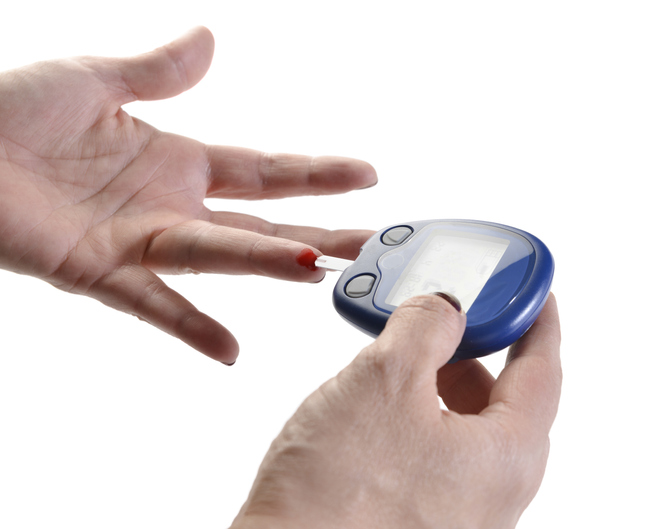Hypoglycemia Affects the Brain
Hypoglycaemia is a symptom to watch out for in diabetic patients. This is because blood sugar drops to levels too low to maintain normal functioning. A condition in which blood sugar levels fall below approximately 70 mg/dL.
According to a paper published in the journal PLoS One in June 2015, hypoglycemia is a common symptom in patients with type 2 diabetes. According to the researchers, diabetic patients experience an average of 19 episodes of mild or moderate hypoglycemia per year, and an average of one episode of severe hypoglycemia per year. Low blood sugar was especially common in people taking insulin.
According to the American Diabetes Association (ADA), this drop in blood sugar levels can cause short-term complications such as confusion and dizziness, as well as serious problems such as seizures, coma and, in rare cases, death.
Harvard Health Publishing explains that hypoglycemia usually occurs when too much insulin is given or when the wrong diet or exercise habits are changed.
Everyday Health, an American health media, introduced representative symptoms that can appear due to low blood sugar. The Mayo Clinic in the US recommends monitoring blood sugar levels and starting treatment as soon as you notice low blood sugar to prevent dangerous side effects.
sudden hunger
The Cleveland Clinic in the United States pointed out that sudden intense hunger is a sign that blood sugar levels are falling. For diabetic patients, it is recommended to consume 15 to 20 g of carbohydrates at snacks and 40 to 65 g at each meal. However, it is best to consult a nutritionist or certified diabetes management and education professional to determine the right carb intake for you.
Anxiety
When glucose levels drop too low, the body releases a hormone called adrenaline, which signals the liver to release more sugar into the blood. According to a study published in Psychiatric Case Reports in July 2016, this can cause anxiety and related symptoms such as tremors and sweating.
sleep disorder
Half of hypoglycemia occurs at night, which can lead to several sleep disturbances. Symptoms that occur when nocturnal hypoglycemia occurs include night sweats, nightmares, sudden awakenings with crying, anxiety and confusion upon awakening. Eating snacks before bed can reduce the frequency and severity of sleep disorders. According to the Joslin Diabetes Center, the ideal blood sugar level before rest is between 90 and 150 mg/dL.
hand tremors and tremors
According to research, hand tremor is a symptom that occurs when the autonomic nervous system is activated in a hypoglycemic state. When hypoglycemia occurs, the supply of glucose to the brain and nervous system becomes insufficient, and our body activates the autonomic nervous system to overcome it. At this time, the sympathetic nerve is hyperactive, and hands may shake or palpitations may occur.
perspiration
According to a 2017 paper published in the Journal of Practical Diabetes, sweating is usually one of the first signs of low blood sugar, and as mentioned earlier, it is caused by increased adrenaline when glucose levels drop. Studies show that up to 84% of diabetics experience sweating during low blood sugar. Hypoglycaemia almost always results in sweating, but the sweating soon disappears when sugar is consumed.
whirl
According to Harvard Health Publishing, when your blood sugar drops, your brain tries to conserve as much energy as possible, which can make you feel dizzy. The Mayo Clinic explained that if these symptoms of low blood sugar appear, you should quickly treat hypoglycemia by eating 15 to 20 grams of fast-absorbing carbohydrates such as juice or candy. Experts recommend seeking medical help if dizziness lasts longer than 15 minutes.
poor concentration
According to Harvard Health Publishing, the brain relies on blood sugar for energy, so when glucose runs out, the brain can fail to function properly. This can make it difficult to focus on one thing at a time. However, it was found that there was no long-term brain damage due to symptoms of moderate hypoglycemia.
vision problems
A sudden drop in blood sugar can cause vision problems. According to past case reports, 73% of study participants experiencing eye problems due to hypoglycemia experienced blurred vision, as well as blurry vision (approximately 45%) and dark spots (37%).
slurred speech and awkward behavior
Speech may become slurred when hypoglycemia occurs. According to the University of Michigan Health System, slurred speech occurs when blood sugar levels fall below 40 mg/dL. According to the National Institutes of Health, another sign of low blood sugar can be awkward behavior and appear drunk.
2023-05-16 11:11:20
#hands #shake #fall

